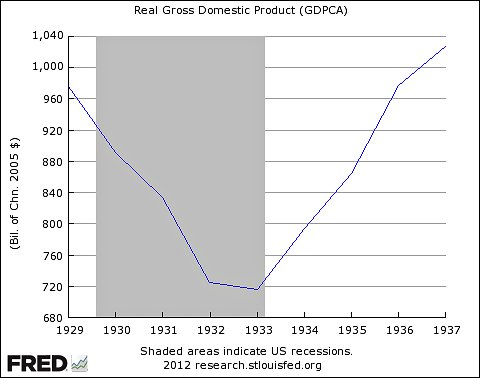ilia25
I can do math
- Jan 12, 2012
- 1,859
- 100
- 48
You cannot explain how the multiplier works. Because it doesn't.
I had explained how multiple works several times in this thread alone. You can't explain how it could not work. All you can is repeating that is doesn't.
It doesn't work because Gov't doesn't have money in the bank to spend on projects. It must coerce that money from somewhere.
Yes, and that is the reason why stimulus works. Because when the economy is depressed, private sector has tons of cash, which is neither spent, nor invested. Banks and companies don't know what to do with it, so it is sitting idle, parked at the Fed.
Borrowing that cash (which private sector is happy to lend, look at the bond rates) and putting it to work is what the government can do to help the economy.


